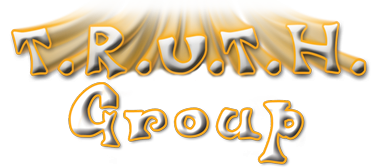- Home
- T.R.U.T.H. About?
- The Past (Beginning)
- Dinosaurs
- The Present (Middle)
- Biblical Calendar
- Sabbath Resurrection
- Scoffers, Sleepers, Errors & Watchers
- The Future (End)
- Feast of Trumpets
- Articles
- History and Archaeology
- Genealogy From Adam to Noah
- Nuggets of TRUTH
- The Center of the Bible
- Gospel Design
- Unwashed Hands
- Simple Truths
- Store
- Contact
Unwashed Hands
Mk 7:1 Then came together unto him the Pharisees, and certain of the scribes, which came from Jerusalem.
Mk 7:2 And when they saw some of his disciples eat bread with defiled, that is to say, with unwashen,
hands, they found fault.
Mk 7:3 For the Pharisees, and all the Jews, except they wash their hands oft, eat not, holding the tradition of the elders.
Mk 7:4 And when they come from the market, except they wash, they eat not. And many other things there be, which they have received to hold, as the washing of cups, and pots, brasen vessels, and of tables.
The audience is established to be the Pharisees and the Scribes (teachers of the Law) (1) and the disciples. The problem at hand is that the disciples did not wash their hands before eating bread (2). There are two important things to note here. First, they were eating bread-which is already clean according to God’s dietary instructions. Secondly, they were accused of not washing their hands-which supposedly defiled the bread (made it unclean) according to the doctrine of the Pharisees and Scribes. This is the issue that will need to be addressed.
Mark helps his readers understand that the Pharisees and Scribes had a “tradition” of washing their hands before they ate. This tradition is found in what is known as the “oral law” (Talmud), which are position of the Scribes and Pharisees is to not understand the whole foundation of the situation Jesus (Y’shua) and the disciples have found themselves in. One has to understand the debate to understand the conclusion.
The Scribes and Pharisees would teach commandments of men (“tradition of the elders”) as though they were equal to or even greater than the commandments of God. For example, the “oral law” has over 1400 commandments for the Sabbath alone, whereas God’s commandments have few. This is certainly a problem for several reasons, which is why Jesus (Y’shua) is going to correct their false doctrine. This is precisely why Mark said “and many other things there be” because the “oral law” was a list of thousands of men’s commandments and traditions that Pharisee and Scribe leadership forced as burdens on the people.
So in just the first three verses we can clearly see that the whole context and problem at hand stems from commandments of men (eating with unwashed hands), not commandments of God.
Thus when Jesus (Y’shua) addresses this situation, this is also what He will address.
Mk 7:5 Then the Pharisees and scribes asked him, Why walk not thy disciples according to the tradition of the elders, but eat bread with unwashen hands?
Just as the above context and situation indicated would happen, this inevitable question was indeed asked by the Pharisees and scribes, and was directed at Jesus (Y’shua). Again, the context and debate at hand is related to the “tradition of the elders” which are commandments of man, not commandments of God.
In response to the question Jesus (Y’shua) refers the Pharisees and scribes to an interesting prophecy in Isaiah. (Notice how the Word (Jesus) always referrers to the written Word.)
Mk 7:6 He answered and said unto them, Well hath Esaias prophesied of you hypocrites, as it is written, This people honoureth me with their lips, but their heart is far from me.
Mk 7:7 Howbeit in vain do they worship me, teaching for doctrines the commandments of men.
In verse 6 it is clear that Jesus (Y’shua) is accusing them of practicing something outwardly (lips) that contradicts their inward reality (heart). This type of worship is in vain (worth nothing) because God only accepts worship that is of a true inward desire to actually worship Him, which is always in accordance to his Word and never in opposition to it. Apparently the evidence of this problem is related to the fact that they teach their own commandments as true doctrine. Why is this a problem? Obedience to God is the primary way we are to love God (1 John 5:3). If men’s traditions or teachings contradict the Word of God, yet we still do them, then we elevate men above God and make null and void his commandments. Thus, we worship is in vain, because we are actually esteeming ourselves or other men above God.
So what does all of this mean?
It means that at first the issue and debate was about commandments of men (“oral law” or “traditions of elders”) verses commandments of God. However, Jesus (Y’shua) went beyond the outward evidence and straight to the heart of the issue, literally. The heart of the Pharisees and scribes was not for God but instead housed a corrupt desire for the selfish attention, worship, glory, respect and praise of the people. They sacrificed Truth for positions of power and esteem.
